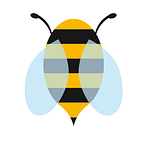from The Woman, the Mirror, the Eye
Maureen Thorson
•
The condition I was diagnosed with is called acute zonal occult outer retinopathy (AZOOR). Its most salient characteristic is that it can’t be seen.
•
At least, not directly. An AZOOR sufferer’s retina appears perfectly healthy — no dead spots or occlusions. AZOOR can only be inferred by testing the patient’s field of vision, one eye at a time, mapping the large blind spots that characterize the condition like someone sounding a bay.
•
You look at the eye — AZOOR’s not there. You look at what the eye sees — ah, there it is.
•
After receiving my diagnosis, I went back to my job as a lawyer, where I pored over long, tiny-fonted legal documents for hours, growing angrier and angrier, wondering if they might be the last thing I see.
•
How do you tell the truth about an illness so rare there’s virtually nothing written about it? A diagnosis that is itself uncertain, because the disease’s primary symptom is that nothing appears physically wrong?
•
How do you tell the truth when you are upset, emotional? After being told I might be going blind, I became angry. Soon, I was angry all the time. But no one seemed to notice. I began to feel as if I were going crazy, as if the only way anyone would get it were if I had some kind of sordid breakdown.
•
Instead, I wrote poems.
•
In “Tradition and the Individual Talent,” T. S. Eliot wrote that “poetry is not a turning loose of emotion, but an escape from emotion; it is not the expression of personality, but an escape from personality.”
•
Yes, and mirrors turn red when menstruating women look at them.
•
Still, I’d like to be free from emotion, though I suspect that a person who expresses none is far more insane than one who expresses too much.
•
The psychiatrist Anna Fels speculates that artists are better proofed against tragedy than other people. Whether crossed by a perfidious lover or a frail body, the artist can wrest back the narrative, retell and shape it, and, finally, call it her own.
•
Hello, book. Hello, little mirror of my suffering.
•
“The ill-formed offspring of my feeble brain,” as Anne Bradstreet said. More Caliban than Ariel?
•
The blind poet is a romantic notion — we ascribe a clairvoyance, literally a kind of “clear seeing” — to Homer and Milton. But the only insight I’ve received from my eye problems is into how unclearly we see everything, even ourselves, and how fitful are our illusions of control.
•
And even as I write this, I question my right to do so. Doesn’t it sound too whiny? Really, I haven’t suffered very greatly. Do I deserve to speak at all?
from The Woman, the Mirror, the Eye
